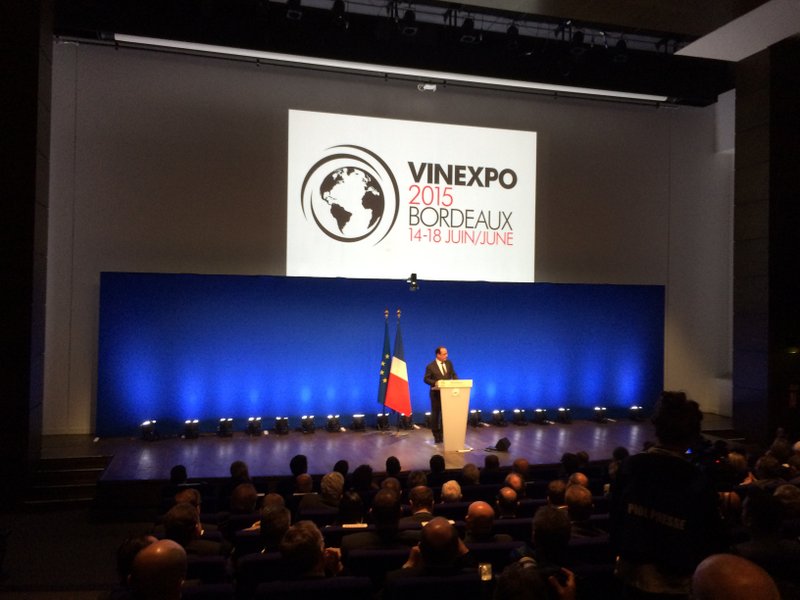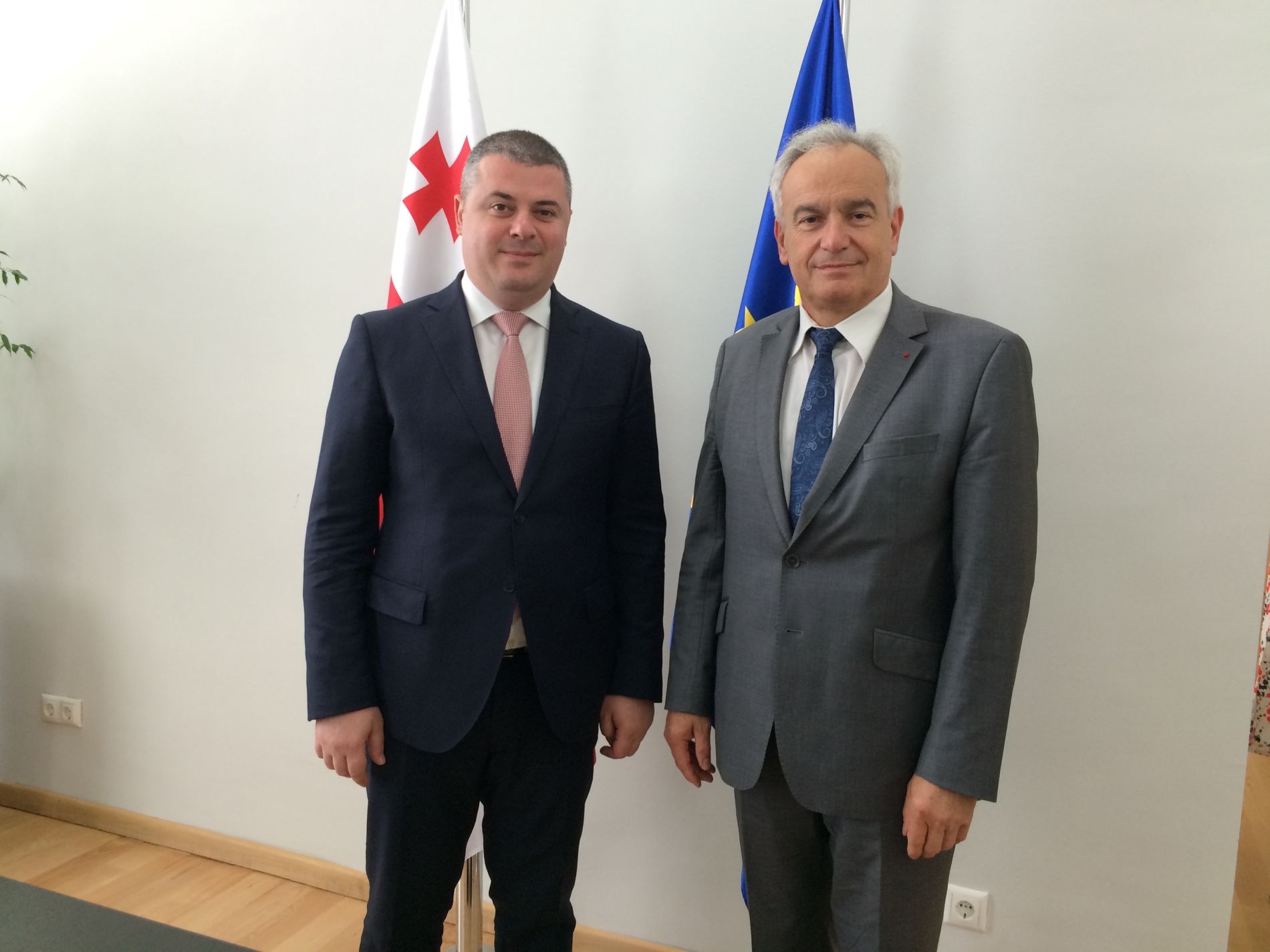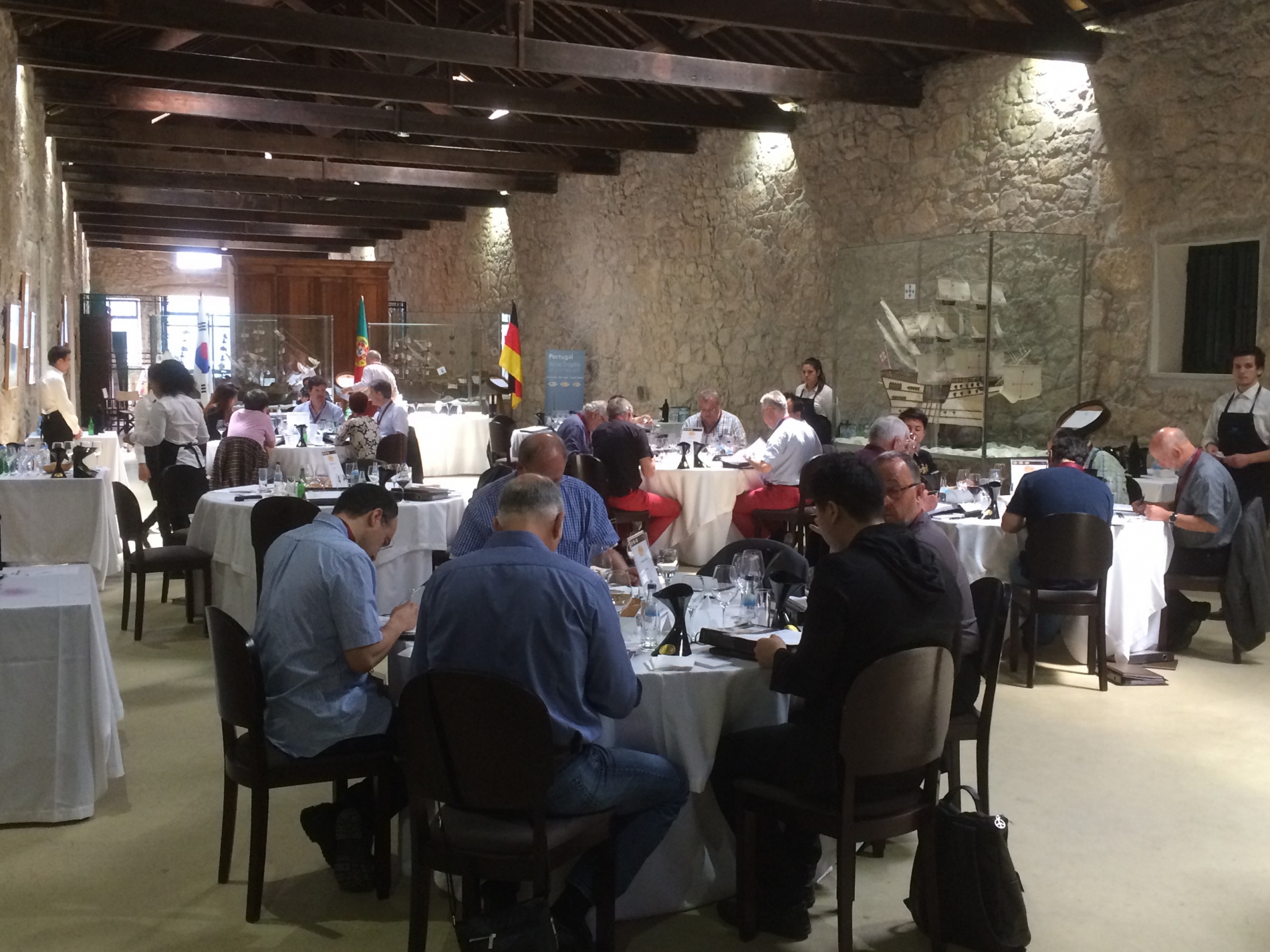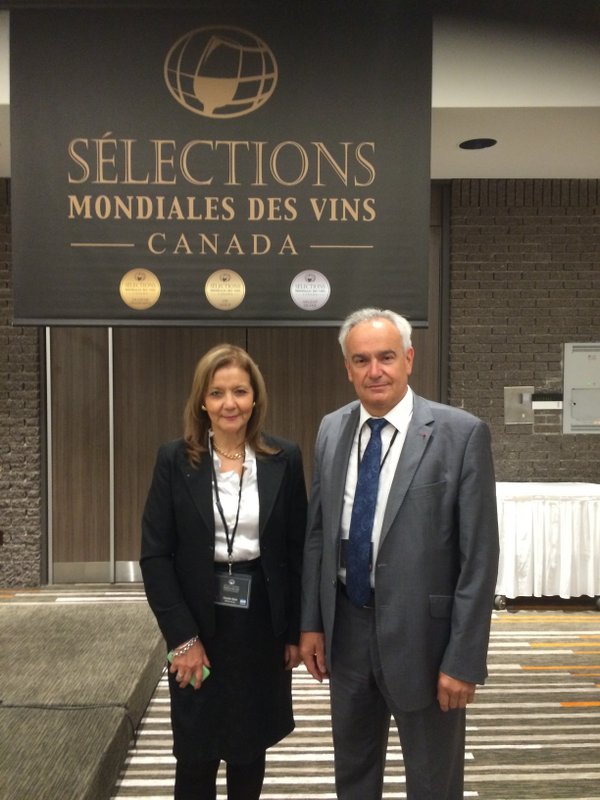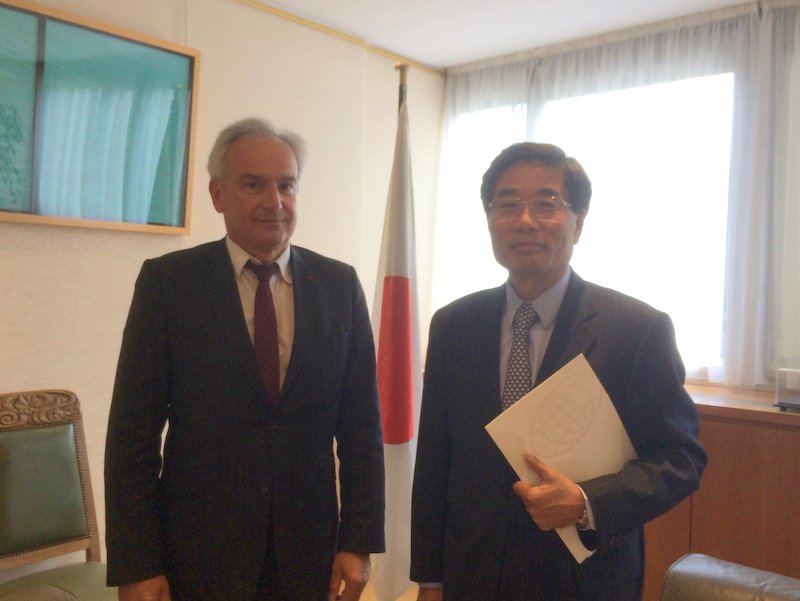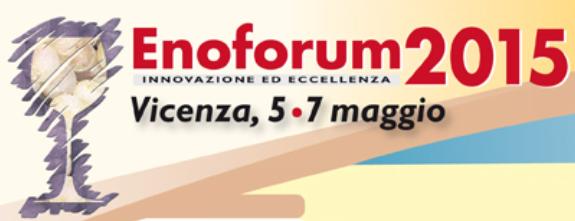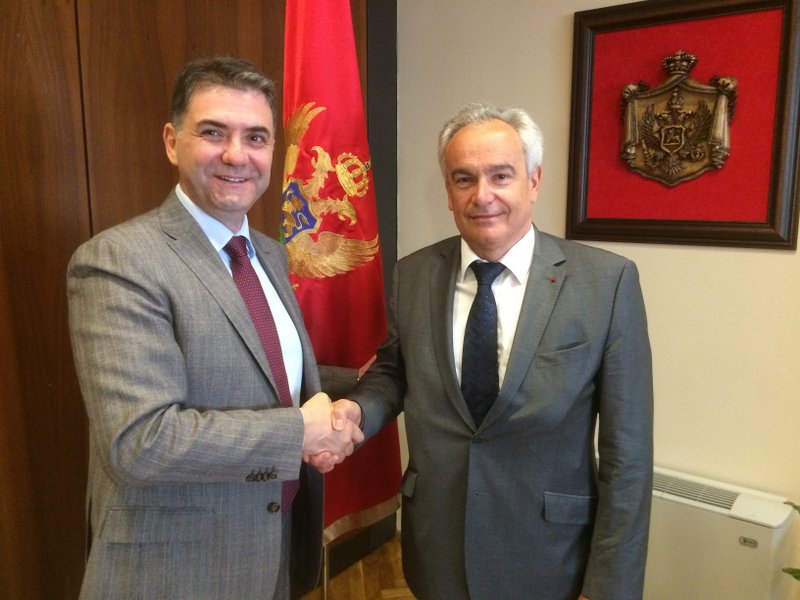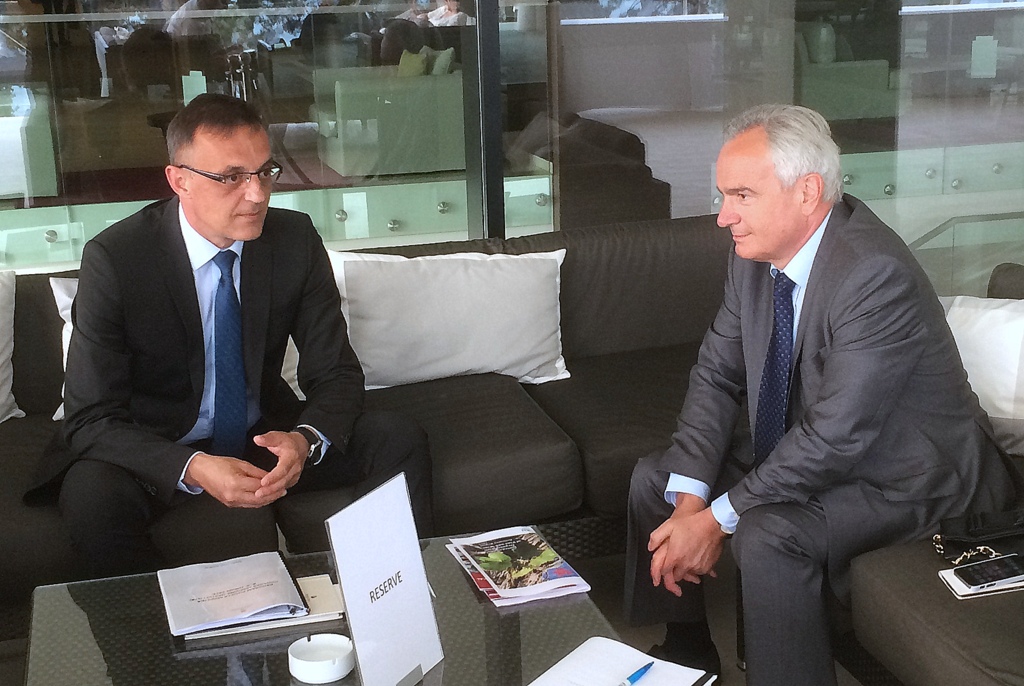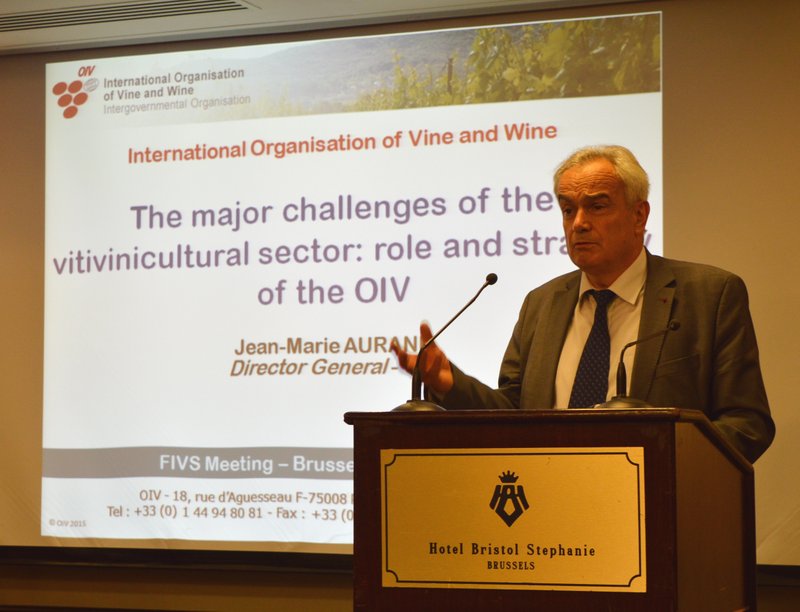14 Jun 2015
“Wine is also a major sales item and it matters that people should know what it is, and what it is not – thus so much hangs on its correct definition,” said the French President, adding that “this is not only the responsibility of producers; consumers too need to be part of the process, and that is why an intergovernmental organisation was set up in 1924, the Organisation of Vine and Wine, which has its headquarters in France.”
Affirming that he wants “the OIV to be able to play its fullest possible part”, François Hollande noted that the Organisation brings together almost 50 Member States “and does a truly remarkable job.”Addressing the representatives of the world vine and wine sector, the French President concluded: “We must widen the scope of the OIV – it is in our interest to do so – to include big countries like China or the United States.”The 18th Vinexpo brings together in Bordeaux some 2400 exhibitors from 45 countries. This salon, which is among the world’s foremost, strives to encourage international trade in wines and spirits, to foster knowledge of these products and to promote them.Speech by François Hollande at the opening of the Vinexpo Exhibition (OIV Speech from 10’18 to 11’06).
08 Jun 2015
Several Georgian wines produced using the traditional method of winemaking in Qvevris (large clay jars) received an award. Jean-Marie Aurand met with the Minister for Agriculture, Mr Otar Danelia. The Minister highlighted the importance that his country attached to his presence at the OIV and indicated that he wished to develop collaboration with the Organisation even further. The Director General also visited the National Wine Agency as well as the Scientific Research Center in Jigaura, which has a collection of over 525 native vine varieties grown in Georgia. In addition, he went to Tbilisi University, which has a significant vitiviniculture department, and paid a visit to several vitivinicultural companies near to the capital and in Kakheti.Georgia produces over a million hectolitres of wine per year and exports about 40% of its production. Inseparable from the country's history and culture, Georgian viticulture is demonstrating its ambitions for both tradition and modernity.
05 Jun 2015
This competition, organised by the Deutsche Wein Marketing allowed to taste and evaluate the surprising number of more than 1200 different samples from all around the world.
The Portugal Wine Trophy plays also a prominent role in the international ranking of wine competitions.To ensure the respect of the OIV standards for international wine competitions, this competition had the presence of OIV’s expert commissioner Jean-Claude Ruf: Scientific Coordinator and Head of Unit of Health and Security of the Organisation.
02 Jun 2015
Claudia Quini, the official OIV delegate at this competition that was placed under the patronage of the Organisation, praised the rapid development of the event, which brought together over 2100 wines this year – 25% more than the last one. A total of 35 countries were represented.During the conference, Jean-Marie Aurand gave a presentation on the OIV and its missions, putting its actions in the context of major developments in the global vitivinicultural sector. Although modest, Canada's wine production – mainly situated in the provinces of Ontario, British Colombia and Quebec – has increased steadily in recent years to reach nearly 600,000 hectolitres (hl).Wine consumption currently stands at 4.8 million hl and has seen an average annual growth of 2.5%. Canada is the fourth biggest wine-importing country in terms of value (1.5bn EUR in 2014).
27 May 2015
A member of the World Federation of Major International Wine and Spirits Competitions (VINOFED) and placed under the patronage of the OIV, this competition stands out due to the fact that it showcases one country in each year, and for this 15th anniversary of this competition, the guest of honour was Hungary.On this occasion, Mr Peter Gàl, Deputy State Secretary at the Hungarian Ministry of Agriculture and delegate for his country to the OIV, presented the various aspects of the Hungarian vitivinicultural field, its economy and professional structure. Furthermore, the sommelier Fruzsina Nagy emphasised the diversity of wine-growing areas, specific vine varieties and wine varieties produced in Hungary that were made available for discovery during a guided tasting.
20 May 2015
This meeting was a continuation of the visit Jean-Marie Aurand made to Japan last September.On this occasion, the Director General of the OIV presented the Organisation and its missions to the Ambassador. He also expressed his desire for a closer relationship between the OIV and Japan at an institutional level. The OIV hosted the first tasting of Japanese wines, organised by the "Koshu of Japan", in 2012.Jean-Marie Aurand recalled the OIV's availability for a repeat of this type of event.
Japan has a long-standing viticultural tradition. Its production is based particularly on varieties such as Koshu or Muscat Bailey (which produce wines that express the terroirs' characteristics with elegance and refinement) and on the establishment of geographical indications.In addition, wine consumption in Japan has seen steady and sustained growth. It reached nearly 3.5 mhl in 2014.
19 May 2015
After explaining the role of the OIV, during his participation Guido Baldeschi has presented the recently published report of global state conditions, and the newest winemaking practices adopted by the Organisation (as those being currently evaluated) more precisely:
- the treatment of wines using a membrane technique coupled with activated carbon to reduce excess 4-ethylphenol and 4-ethylguaiacol;
- a Code of Good vitivinicultural practices in order to avoid or limit contamination by Brettanomyces, a monograph on PVI/PVP adsorbent copolymers.
In this sense, the review of the OIV publication “Compendium of International Methods of Analysis of Wines and Musts” counted with approximately 2000 answers which have been collected through a questionnaire sent by the OIV to more than 1000 laboratories: a project which has started in 2009.Within the themes related to enology and wine production, several topics have been presented at this year’s edition as:
- innovative vineyard practices;
- sustainability and managing;
- how to face old and new diseases of the vines;
- techniques for the color extraction of wine;
- relationship between wine and oxygen;
- malolactic fermentation;
- the use of yeasts and bacteria;
- stabilisation of wine.
18 May 2015
During this trip, Jean-Marie Aurand was welcomed and accompanied by H.E. Frantisek Lipka, Ambassador of the Slovak Republic in Montenegro and also President of the OIV Award Jury.The Minister for Agriculture and Rural Development, H.E Dr Petar Ivanovic, played host to the Director General of the OIV at his vineyard and they had a meeting together at the Ministry. The Minister confirmed his country's commitment to the OIV and expressed his desire to strengthen ties with the Organisation through increased participation of the Montenegrin experts in the work carried out within the various commissions. The organisation of a presentation of wines from Montenegro at the OIV Headquarters was also envisaged for 2016.Jean-Marie Aurand informed the Minister about the work conducted at the OIV within the framework of the Strategic Plan and assured him of his full cooperation. The Director General also visited the Plantaze estate – the biggest in Europe with over 2300 ha of vineyards and 17 million bottles produced per year. The vast majority of its wines are exported and have enjoyed great success around the world.In addition, he gave a conference at the private university in Podgorica.A member of the OIV since 2007, Montenegro produces quality wines, especially from native vine varieties such as Vranac or Krstac, and wishes to make the most of this potential and modernise its vitivinicultural sector in the coming years.
13 May 2015
Placed under the patronage of the OIV, this competition brought together 140 wines of the Malvasia vine variety from 5 different countries.On this occasion, Mr Jean-Marie Aurand met with the Minister for Agriculture, Mr Tihomir Jakovina. He confirmed the desire of Croatia, a member of the OIV since 2001, to continue its involvement in the work of the OIV.The Director General praised the Croatian experts' contribution to the activities of the Organisation and also proposed that Croatia organise a wine presentation at the OIV headquarters in 2016.Croatia has begun a process of modernising its vitivinicultural sector in recent years, especially by promoting native varieties.
04 May 2015
The conference of the International Federation of Wines and Spirits (FIVS) was dedicated to new challenges for the vitivinicultural sector, particularly in social and societal terms, and to their consideration by the companies. It gave rise to many speeches from experts on social responsibility and environmental matters, as well as from institutional representatives.
Jean-Marie Aurand gave a presentation on the new challenges for the vitivinicultural sector and the OIV's strategy to accompany these developments.He pointed out the growing globalisation of the vitivinicultural market on a worldwide scale and, within this context, the need to both improve the competitiveness of companies and meet the increasing expectations of consumers and citizens – with regard to the quality and diversity of products as well as environmental protection.The OIV, through its technical and scientific expertise (brought by almost 1000 experts from the scientific community and also, to a considerable extent, from the professional sector), thanks to its procedure of taking decisions by consensus, and due to the fact that it is highly representative (with 46 producer and consumer Member Countries accounting for over 85% of world wine production and consumption), is at the centre of these concerns.The standards and guidelines drawn up by the OIV in relation to the identification of vitivinicultural products, specifications of oenological practices, methods of analysis and labelling rules guarantee the quality, identity and longevity of different products while also contributing to the fairness of trade by minimising obstacles to commerce.Finally, the Director General praised the quality of the relationship between the OIV and the FIVS, stressing the high level of involvement of industry representatives in the work of the Organisation and their very constructive contributions on all levels.
